Natural Hazards Research Summit 2022
October 6-7, 2022 | Washington, DC
Program Day 1
National Academy of Sciences Building, 2101 Constitution Avenue NW, Washington DC.
Venue opens at 8:00am ET.
Day 1 is the "big tent" event at the National Academies of Sciences, designed to bring people together to discuss national research needs and future directions. The program starts with a Keynote address, followed by an expert panel discussion and TED-style talks from leading researchers and ends with a town-hall style visioning session for our collective voices to be heard.
What can we do to advance hazards research and promote resilient communities?
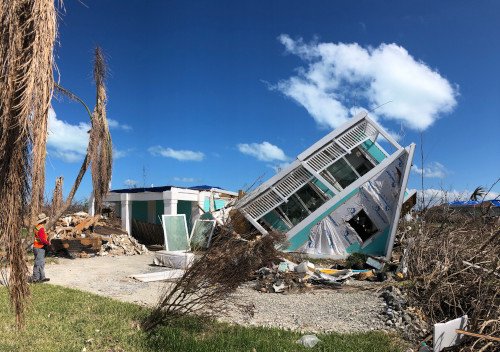
Day 1 Schedule
All presentations for Day 1 will be held in Kavli Auditorium.
Session descriptions are available below the schedule. Times in the schedule table link to the full session details.
|
8:00 AM |
Great Hall Opens |
|
Opening Remarks |
|
|
NSF Remarks |
|
|
Keynote Address |
|
|
Panel Session: |
|
|
10:30 AM |
Break |
|
From Research to Impact: How Collaborative Networks Are Changing Hazards Research |
|
|
Enabling the Mass Timber Revolution |
|
|
The Role of Data in Transforming Hazard and Disaster Research |
|
|
12:15 PM |
Lunch at the NAS |
|
Promoting Multi-Disciplinary Natural Hazards Research Through High-Resolution Regional Simulations |
|
|
The Power of Convergence |
|
|
How Convergence, Networks, and Long-Term Programs Create an Ecosystems for Next-Generation Workforce in Natural Hazards and Disasters |
|
|
Living at the Hinge of History: Technological Trends Shaping the Future of Natural Hazards Engineering |
|
|
2:55 PM |
Break |
|
Visioning Session: |
|
|
Day 1 Closing Remarks |
|
|
Summit Reception |
|
|
6:00 PM |
Adjourn |
Day 1 Sessions
8:00AM Great Hall Opens
Attendees may begin entering the Great Hall at the National Academy of Sciences building.
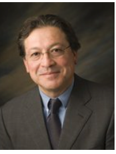
Julio Ramirez
Summit Co-chair
Professor, Purdue University. Lead PI and DIrector, NHERI NCO
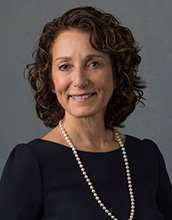
Susan S Margulies
NSF Directorate for Engineering Assistant Director
Dr. Susan S. Margulies leads the U.S. National Science Foundations Directorate for Engineering in its mission to transform our world for a better tomorrow by driving discovery, inspiring innovation, enriching education, and accelerating access. NSFs investments lead to innovative technologies and sustainable impacts in health, clean energy and water, resilient infrastructure, advanced manufacturing, and many other areas. NSF support also builds the Nations workforce capacity in engineering and supports the diversity and inclusion. Dr. Margulies joined the NSF after leading the Wallace H. Coulter Department of Biomedical Engineering at the Georgia Institute of Technology and Emory University.
8:45AM Keynote Address
The keynote address will underscore the critical role that university research must play in addressing the countrys failing infrastructure and enhancing the nations resilience to natural hazards.
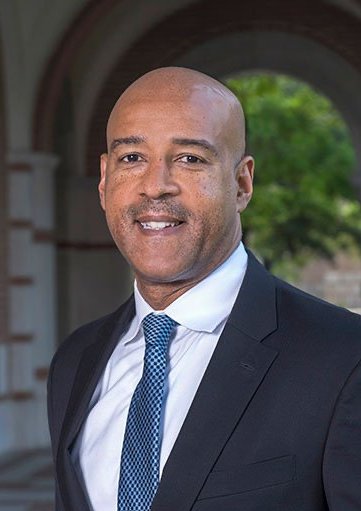
Reginald DesRoches
President, Rice University
A fellow of the American Society of Civil Engineers (ASCE) and the society's Structural Engineering Institute (SEI), DesRoches served as the key technical leader in the United States response to the 2010 Haiti earthquake, taking a team of 28 engineers, architects, city planners and social scientists to study the impact of the earthquake. He also has participated in numerous congressional briefings to underscore the critical role that university research must play in addressing the countrys failing infrastructure and enhancing the nations resilience to natural hazards. DesRoches chairs the National Institute of Standards and Technology (NIST) National Construction Safety Team Advisory Committee (NCST) and is on the advisory board for the Natural Hazards Engineering Research Infrastructure (NHERI) Simulation Center. He previously served on the National Academies Resilient America Roundtable (RAR), the Global Earthquake Modeling Scientific Board and the National Science Foundation Engineering Advisory Council. He has testified before U.S. House and Senate subcommittees on the science of earthquake resilience, and he has participated in Washington, D.C., roundtables for media and congressional staffers on topics ranging from disaster preparedness to challenges for African American men in STEM fields.
9:15AM Expert Panel:
National Need, Priorities, and Opportunities in Disaster Research
Federal agency experts join the keynote speaker for a panel discussing the national needs related to hazard and disaster research and the role of universities and diverse, collaborative networks in addressing future challenges, including infrastructure renewal, disaster equity, climate change, and resilient communities.
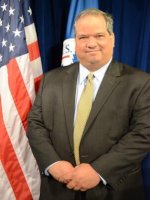
Eric Letvin
Deputy Assistant Administrator, Mitigation Division, FEMA
Mr. Letvin directs FEMAs pre- and post-disaster mitigation programs that support sustainable, disaster-resilient communities, to avoid or reduce the loss of life, property, and financial impacts of natural hazards. These programs include the Building Resilient Infrastructure and Communities Grant Program, the Hazard Mitigation Grant Program, the Flood Mitigation Assistance grants, the Floodplain Management component of the National Flood Insurance Program (NFIP), and the Community Rating System under the NFIP.
https://www.fema.gov/profile/eric-letvin
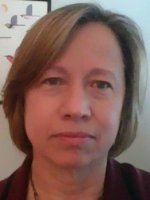
Jacqueline Meszaros
Science & Technology Advisor for Hazards, Disasters and Resilience, NSF
Jacqueline Jack Meszaros coordinates disaster-relevant interagency and cross-directorate activities as well as coordinating with academic partners. From 2015-2019, she served as the senior policy advisor and assistant director for natural hazards resilience at the White House Office of Science and Technology Policy (OSTP). She has provided science advice to the National Academy of Sciences and NASA, among others.
https://hazards.colorado.edu/workshop/2020/speaker/jacqueline-meszaros
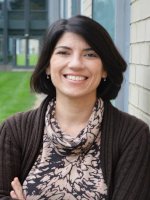
Judy Mitrani-Reiser
Associate Chief, Materials and Structural Systems Division, NIST
Mitrani-Reiser provides leadership in the development and coordination of statutory processes for making buildings safer as authorized by various statutes, including the NCST, NWIR, and NEHR Acts. She manages and provides oversight on building failure investigations and coordinates work with other Federal agencies to reduce losses in the United States from disasters and failures of our built environment.
https://www.nist.gov/people/judith-mitrani-reiser
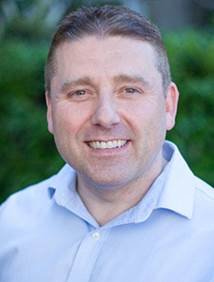
Scott Weaver
Executive Director, Interagency Meteorological Coordination Office, White House Office of Science and Technology Policy
The IMCO is the headquarters for the Interagency Council for Advancing Meteorological Services (ICAMS) the formal mechanism by which all relevant federal departments and agencies coordinate implementation of policy and practices to ensure U.S. global leadership in the meteorological services enterprise. Dr. Weaver served as the Director of the interagency National Windstorm Impact Reduction Program led by the National Institute of Standards and Technology, and as the Senior Climate Scientist for Environmental Defense Fund, where he was engaged in scientific research and outreach at the intersection of meteorology, climate science, and international climate policy goals.
https://www.icams-portal.gov
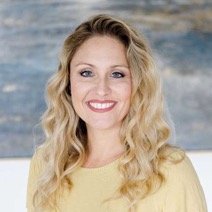
Moderated By:
Jamie Padgett
Stanley C. Moore Professor in Engineering, Rice University
Padgetts research focuses on the application of probabilistic methods for risk assessment of infrastructure, including the subsequent quantification of resilience and sustainability. Her work emphasizes structural portfolios such as regional portfolios of bridges or oil storage tanks exposed to multiple hazards, including earthquakes, hurricanes, or aging and deterioration.
https://profiles.rice.edu/faculty/jamie-padgett
10:30AM Break
The hosted break will be held in the Great Room.
11:00AM Invited Presentation:
From Research to Impact: How Collaborative Networks Are Changing Hazards Research
This session will showcase vignettes of research that has translated into policies that protect critical infrastructure and reduce the risk of hazards for our communities.
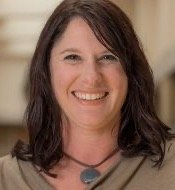
Tracy Kijewski-Correa
Professor, University of Notre Dame
Director, Structural Engineering Extreme Event Reconnaissance (StEER) network
11:25AM Invited Presentation:
Enabling the Mass Timber Revolution
As we move through the decades since three seminal earthquakes between 1989 and 1995 occurred there has been a mega-shift toward resilience and sustainability, and the shared-use facilities within NEES and NHERI have been truly integral to this still-accelerating story; included here will be the evolution of the wood building as an illustrative example. This talk will take you back 25 years beginning in the 1990s with woodframe research and on to performance-based seismic design of taller wood buildings. Enter mass timber, a sustainable revolutionary technology capable of bringing wood buildings to truly new heights with Centers around the U.S. formed to focus on tall wood buildings and the worlds tallest shake table test underway; an unfinished story.
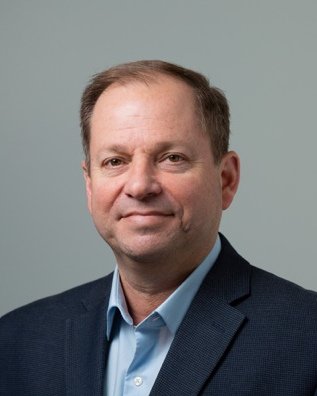
John W van de Lindt
Professor, Harold H. Short Endowed Chair
Colorado State University
11:50AM Invited Presentation:
The Role of Data in Transforming Hazard and Disaster Research
How close are we to realizing a vision where hazard forecasting is as commonplace as weather forecasting? The key to realizing this vision is real-time data collection, integration, and analysis coupled with hazard impact visualization. At the core of this work are data-driven models that predict hazard impacts, which can only be developed if large volumes of data are available regarding all dimensions of natural hazards. This talk will explore the current research efforts and future research needs required to achieve this vision.
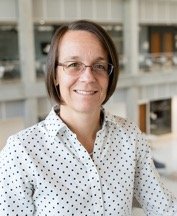
Ellen Rathje
Professor and Janet S. Cockrell Centennial Chair in Engineering, University of Texas Austin
Director of DesignSafe-CI
12:15PM Lunch
A catered lunch is provided with your registration. Lunch will be held in the Great Hall and will provide opportunities for networking with colleagues and presenters.
1:15PM Invited Presentation:
Promoting Multi-Disciplinary Natural Hazards Research through High-Resolution Regional Simulations
Advancements in high-performance computing and information technologies are making it possible to integrate detailed performance-based analyses of buildings, lifeline systems and other assets with regional-scale earthquake simulations. When combined with high-resolution parcel level building inventories, socioeconomic demographic data, and urban planning concepts, this convergence of modeling capabilities offers unprecedented opportunities for multi-disciplinary research on resilience of communities to earthquakes, hurricanes, and other hazards. A cloud-enabled computational framework for high-resolution regional performance-based simulations is described, along with a few illustrative examples of how comprehensive detailed simulations can inform the planning, design, and deployment of mitigation strategies of more resilient communities.
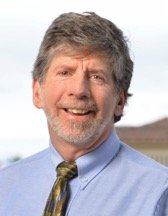
Gregory G. Deierlein
Co-Director NHERI SimCenter
John A. Blume Professor of Engineering, Stanford University
1:40PM Invited Presentation:
The Power of Convergence
This talk will make the case that engineers and social scientists need to work even more closely together if we are going to solve the grand challenges facing humanity. Lori Peek, a sociologist and leader of the NHERI CONVERGE facility, will argue that addressing equity gaps and reducing the harm and suffering caused by disasters requires this kind of deep collaboration. She will also share stories that help illuminate why engineers need social scientists (and vice versa!) and provide a roadmap for how we can more effectively develop convergent research partnerships.
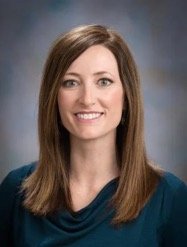
Lori Peek
Director, Natural Hazards Center and Professor, Department of Sociology
Principal Investigator, NHERI CONVERGE
University of Colorado Boulder
2:05PM Invited Presentation:
How Convergence, Networks, and Long-term Programs Create an Ecosystem for the Next-generation Workforce in Natural Hazards and Disasters
This talk emphasizes the necessity of large, collaborative networks to leverage research and education to develop the next generation workforce to conduct natural hazards engineering research.
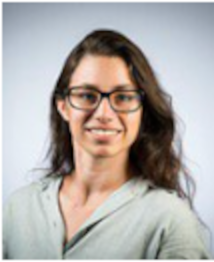
Barbara Simpson
Assistant Professor, Stanford University (Fall 2022)
2:30PM Invited Presentation:
Living at the hinge of history: technological trends shaping the future of natural hazards engineering
The fourth industrial revolution is reshaping the study of natural hazards. Research designs that harness ML/AI and high throughput experimentation are replacing trial-and-error methods. Robotics, IoT devices, and human-centered computing tools are nearing ubiquity. Access to research infrastructure, curated data, and open software architectures is growing. Public access policies drive sharing of findings, lowering barriers to explore the knowledgebase. Educational practices are evolving to support short-term, skills-based programs for credentialing, upskilling, and job recruitment/placement. Access to student talent is also growing as delivery of curricula becomes more flexible and as higher education reaches more people globally.
These trends are reshaping our technical core competencies and creating pathways for diverse technical perspectives to inform the study of vexing problems old and new. This presentation will explore the far horizon, with the goal of fostering long-term thinking and activating discussion on long-range opportunities from which medium- and short-term plans may be built.
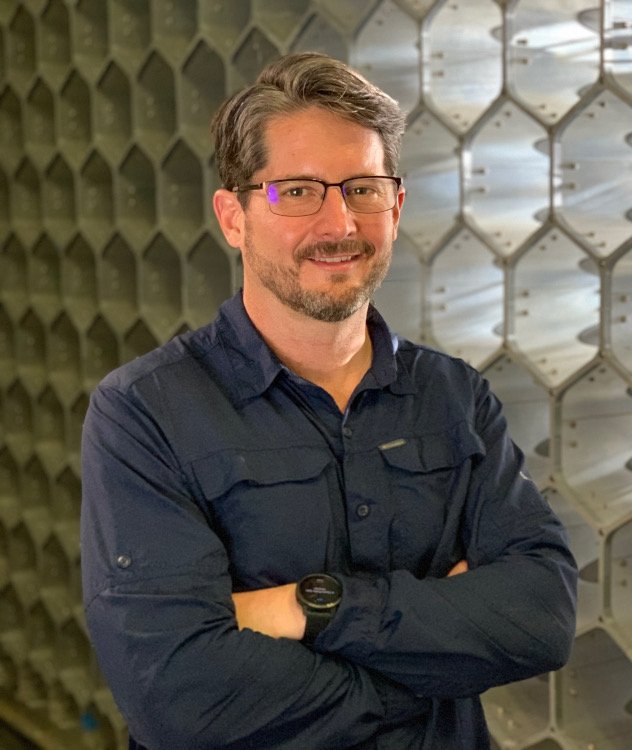
Forrest J. Masters
Assistant Vice President for Strategic Initiatives,
University of Florida
2:55PM Break
The hosted break will be held in the Great Hall.
3:15PM Visioning Session:
Future Research Needs and Priorities
This is your chance to be heard! This town hall style interactive session will invite ideas and discussion among attendees to define university research needs, opportunities, and priorities. The ideas from this session will inform the mini-workshop on Day 2 as a conceptual roadmap for future research directions.

Tracy Kijewski-Correa
Leo E. and Patti Ruth Linbeck Collegiate Chair and Associate Professor, University of Notre Dame
Director, Structural Engineering Extreme Event Reconnaissance (StEER) network
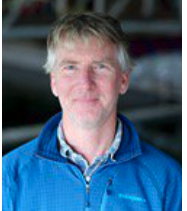
Daniel Cox
Summit Co-chair
Professor, Oregon State University
Lead PI, NHERI EF at OSU







